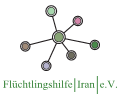An exploration and critique of the use of mental health information within refugee status determination proceedings in the United Kingdom
by Jennifer Barrett, Ilim Baturalp, Nath Gbikpi, Katherine Rehberg
This study seeks to understand the composition, use and cultural orientation of mental health evidence within the UK’s refugee status determination (RSD) process, focusing specifically on mental health evidence provided in the form of a medico-legal report (MLR). By exploring those themes, this paper also strives to provide insight into what constitutes “valid” medical evidence in the context of RSD. Employing a constructivist paradigm, the study is based on 14 interviews with individuals involved in the production of mental health evidence, analysis of documents providing guidance about the production of MLRs, and analysis of MLRs themselves. It is argued that the “validity” of an MLR is based on the one hand on the perceived credibility of MLRs, and on the other hand on the perceived veracity of the mental health information it contains. The perception that evidence is “valid” can be seen as proportionate to the extent to which the report author is considered to be credible and able to frame and articulate information in a “neutral and objective way”. However, this “objectivity” is an expression of a particular, culturally specific conception of mental health; one that is framed within a Western, biomedical paradigm. As such, the MLR author has a de facto role of structuring and channelling a range of cross-cultural information into a particular, culturally specific model.
Veröffentlicht am 27. Juli 2014 in Asyl, Asylrecht, Dokumentation, Empfehlungen, Gesetze, Human Rights, Medien, Meinungen, Politik und mit Asyl, England, Gesetze, Great Brtitain, Human Rights, Medien, Menschenrechte, Politik, Refugees, UK getaggt. Setze ein Lesezeichen auf den Permalink. Kommentare deaktiviert für An exploration and critique of the use of mental health information within refugee status determination proceedings in the United Kingdom.





